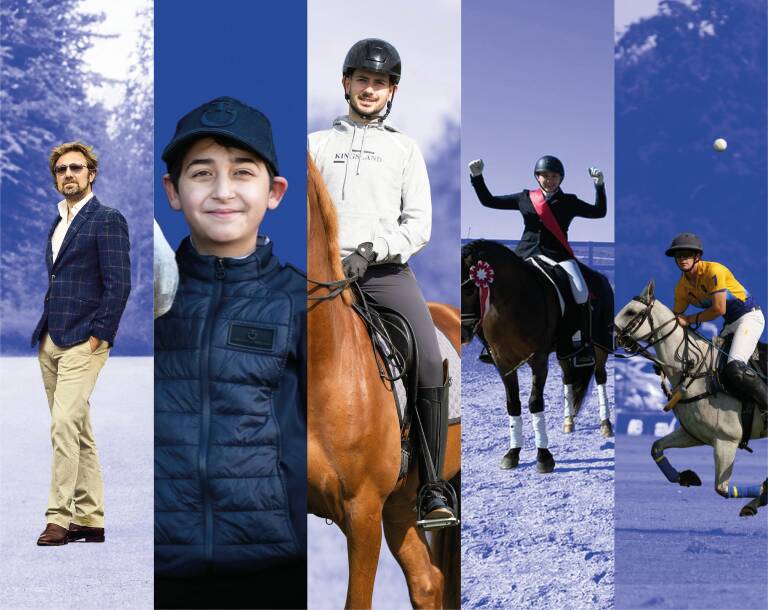
– Sam Wisbey
Having done many equestrian disciplines growing up, I find that men are perceived differently in each discipline, especially by non-equestrian people
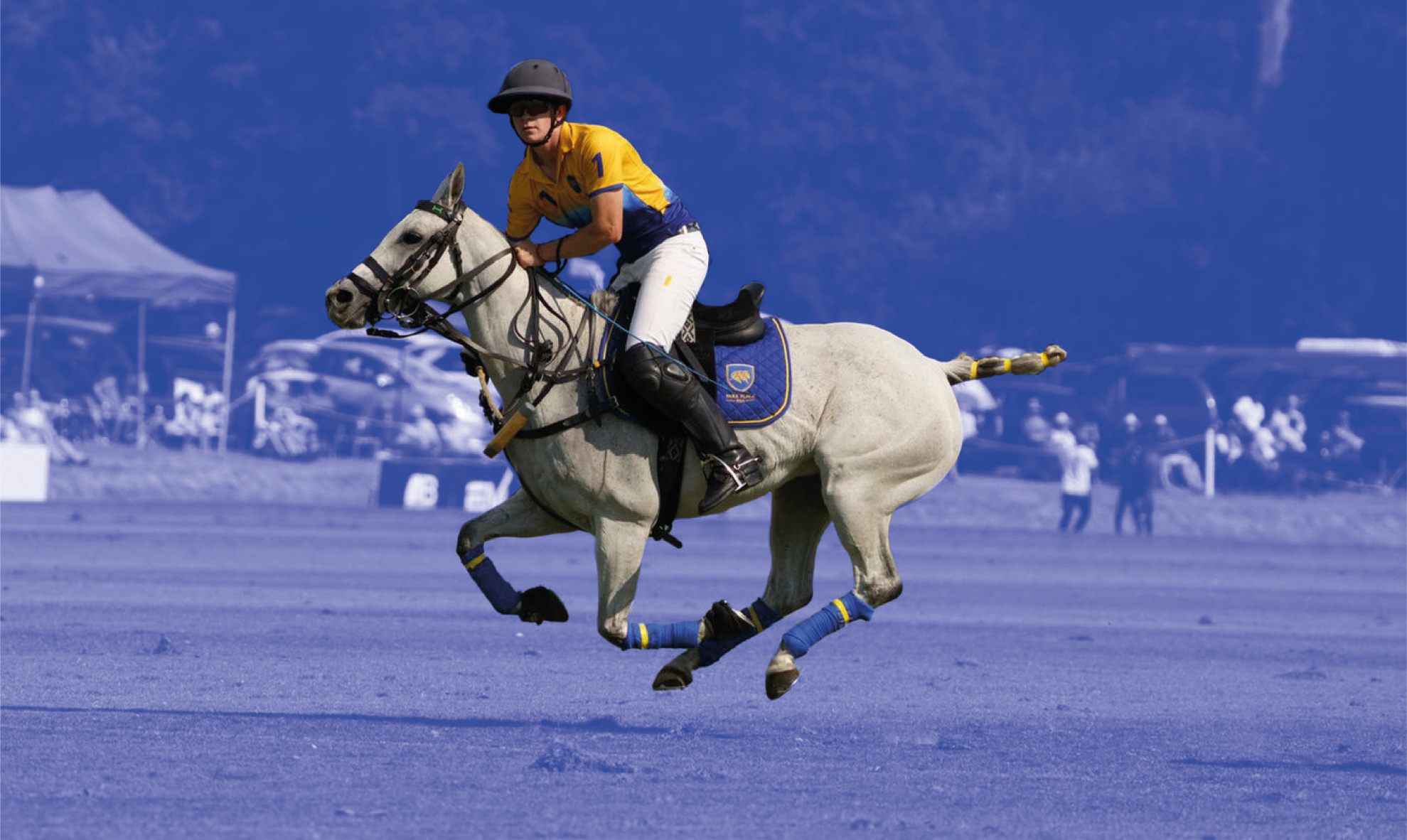

– Moisés Jover Azuar
I think it is the same thing that drives men and women. It is the passion for horses and the desire to ride

– Christian Green
I have experienced prejudice from other men about riding in general
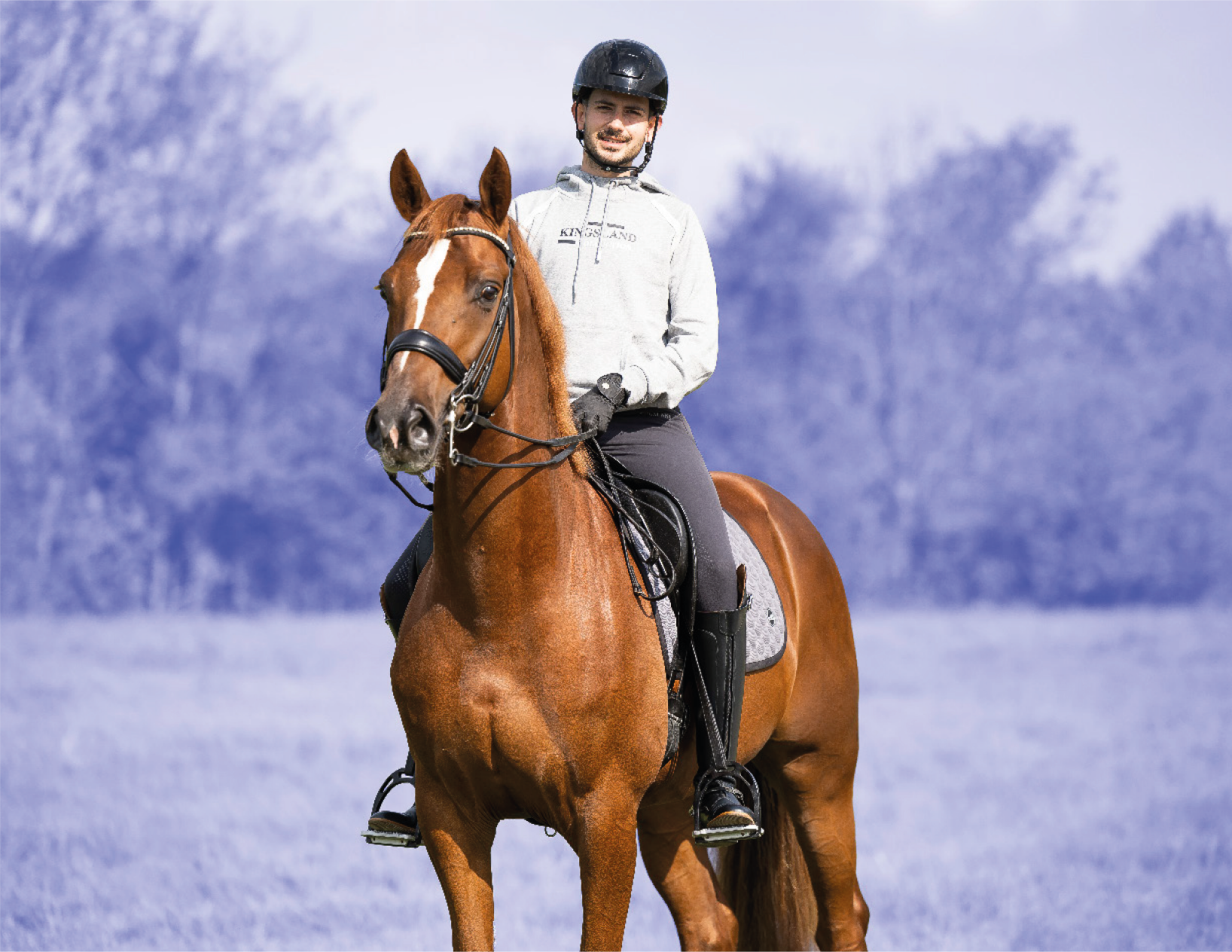
Difficult to be a male and a beginner
Today, a lot of men are at the top of both dressage, jumping, and everything in between. On a hobby level, Dueholmgård Riding Center has, at times, had an all-male team where the men could learn everything from saddling up to handling the horses and becoming comfortable with the horses. To many of the men, it was more complicated than they had assumed, says Malene Treldal, owner of Dueholmgård Riding Center.
The men's team ended up being a success and created a community for many men: "I think it is about normalizing it. In addition, it is important to have great male teachers so that the men have someone to look up to. And last but not least, it is important to focus on social issues. Most men have a hobby of being social, and therefore we put a lot of effort into our classes to 'draw them together' as well as spending time after the classes to banter over a beer," explains Malene Treldal.
Exactly what the boys mention is what equestrian sports are capable of doing, among other things. It brings us together around our shared passion, but something must be done to retain the boys.
"I think polo attracts more men than many other disciplines in equestrian sports. I experience that many
he explains. Moisés rides dressage and has been in the saddle since he was three years old and never left the saddle. He has always loved dressage as it is all about focus and details – a discipline that focuses on something other than speed and height. "Dressage requires precision and focus on the smallest details. In riding, you have to be passionate - regardless of gender. In jumping, there is just more speed, but dressage is more a form of dancing with the horse, and I think that deters many men from dressage," Moisés explains.
Moisés has experienced that there is often an assumption that the horse is strong if a man rides it, but for him, it is not about gender, but about one thing, if you want to be a good rider you will be looking for a perfect harmony.
“I think it is the same thing that drives men and women. It is the passion for horses and the desire to ride.” There are no clear answers as to how more men can be involved in equestrian sports - but what is common to the boys as well as the men is that communities and role models can make equestrian sports attractive. To show people that equestrian sport is a sport with room for precision and speed together with others – and most importantly, with the horse and like-minded people.
boys try out riding when they are young, but as they get older, they lose interest maybe because riding is not considered a masculine sport. That is why I think it is important to focus on keeping the boys in the sport rather than getting them into it later in life," Sam explains.
They have all started somewhere - and for many of them, it has probably been in a completely ordinary stable with the classic gender distribution, with mostly girls. It can be difficult to pinpoint one specific reason why some boys and men quit the sport, but despite that, there are several talented male riders at the top level of equestrian sports. "The boys can be extremely persistent and less perfectionist than the girls, and that is why they persist, even if it does not always look perfect," says Ulf Helgstrand.
But there is a lot of male equestrians out there. One is Moisés Jover Azuar, who has ridden dressage at the top level in Spain, Denmark, Germany and the Netherlands. Today he rides at Helgstrand Dressage.
"In Spain, there is a completely different and positive approach towards men riding horses - perhaps it is connected with the tradition around the Spanish Riding School – but in Denmark and Germany, I have the experienced that there are far more women,"
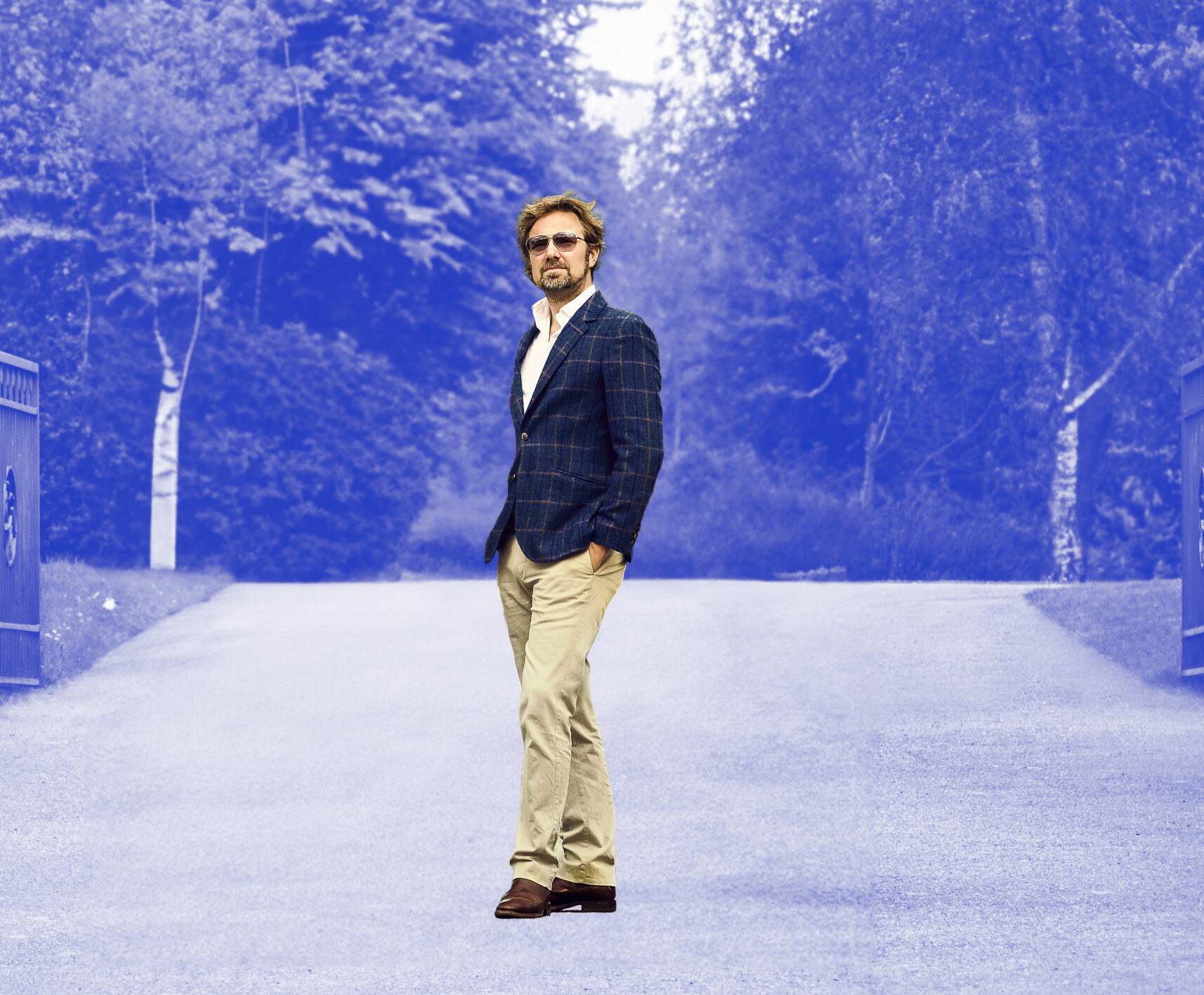
WE RIDE BECAUSE....
Tjalfe, 15 years: "I like it because it is cool that you can control such a large animal. And that gets the adrenaline going. It makes me very happy.”
Efe, 11 years old: "It is fun to ride dressage and get better and better, and suddenly you succeed in exercises you could not do before. After all, it is a collaboration with your pony. It is also nice to just be with your pony, and it is great to go to competitions with your friends.”
Frej, 7 years: "It is fun to ride as a boy, and it does not matter that there are no other boys because I like the older girls. It is fun to jump and being at shows.”
Emil, 14 years: "You are dealing with a large animal, and working with and training the horses is exciting. And then it is a challenge for yourself to perform well at the competitions.”
Nicolaj, 17 years: "There are not many people to look up to as there are so few boys in equestrian sports, and others might look down upon you because you are really passionate about something. Therefore, I think that the Association of Boys in Equestrian Sports is fantastic, because it brings us boys closer together. We can find someone to look up to and find friendships for life.”
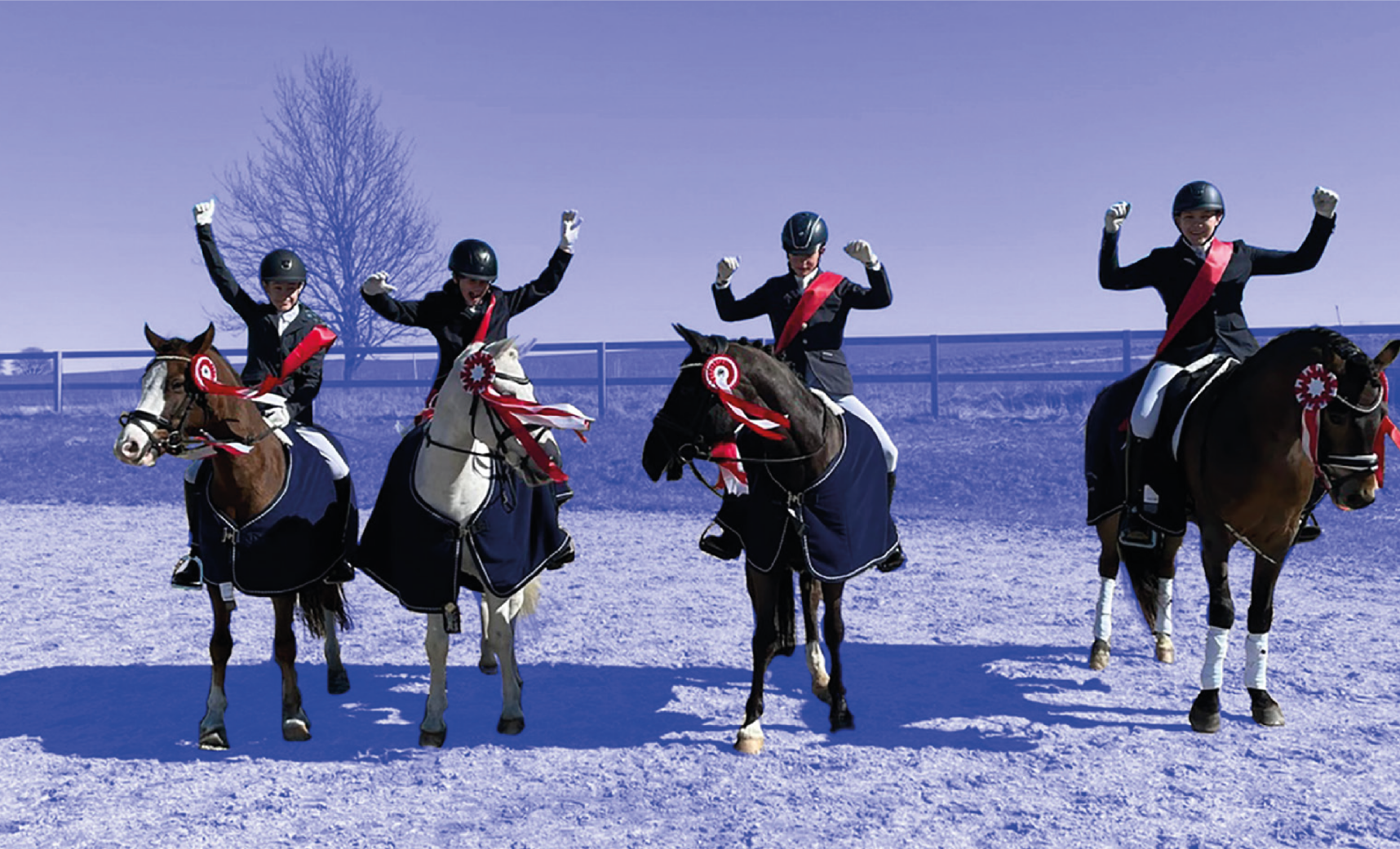
Action and speed attract the men
Fortunately, it is far from all boys who are concerned about being in the stables, yet different aspects of equestrian sports may be important to the boys.
"It does not feel strange but very natural. I do not think much about being the only boy, and I can easily talk with the girls at the riding school. Riding and walking the horses to the paddock is fun, but I do not feel like participating in grooming competitions. It is also fun to participate in competitions," says Jonathan.
Most horse people can probably agree that handling horses daily is hard work. "Perhaps many are put off by the concept of a horse girl, which is so misunderstood. Equestrian sports are difficult; it is heavy work pushing wheelbarrows and cleaning the stables. It is enormously hard work dealing with horses, and I find that you often forget the strength and courage it gives," Pernille Stensgaard explains. However, there may be differences in the individual disciplines when we look generally at the distribution between men and women in equestrian sports. In polo, for example, there is often an overrepresentation of men, and this can be due to several things, says Christian Green, chairman of the Copenhagen Polo Club,
"When you play polo, there are short periods of high intensity and a great adrenaline rush. It combines hand-eye coordination, action and team- and contacts sports.” Christian has not experienced any significant challenges being a man in equestrian sports. He attributes it to the discipline. "I feel a clear difference between riding in general versus playing polo. I have experienced prejudice from other men about riding in general, but polo, on the other hand, seems to give a different kind of respect. I think men see the sport as more masculine and action-packed with a touch of high society.”
The English polo rider Sam Wisbey has the same opinion and experiences a big difference between the disciplines. "Having done many equestrian disciplines growing up, I find that men are perceived differently in each discipline, especially by non-equestrian people. Now being in polo, I would say that men are definitely favored being a male-dominated sport," he explains.
For the very young boys, speed is also something that drives them, says 11-year-old Magne: "It is so fast when you gallop - especially on my horse." But it is not always just the pace that drives boys and men in equestrian sports. "I like riding because it is something you can immerse yourself in and improve in many aspects of the sport," says 17-year-old Nicolai. What they have in common is that it is outside the barn that they have been met with prejudice and wonder.
"I was teased when I was younger, but now people can see that it is a great gift to be able to sit tight on a horse when it is bucking, and then they can see that I have serious leg muscles from riding. It is great that I am strong," says 15-year-old Tjalfe.
FROM FARM ANIMAL TO HOBBY
For more than 6000 years, the horse has mostly been used by men, and the horse has been a working tool in agriculture and for transport, but also a status symbol for the upper class. In Germany, Sweden and France, among others, strong horses were bred to pull carts and serve in the military.
Over time, the horse was replaced by agricultural machinery, and the horses served their military service. This opened an opportunity for horse riding to become a hobby – also a hobby to be pursued at a competitive level for both men and women. Horse riding is about 100 years old as a competitive sportand in the beginning, women were excluded from the sport. In 1912, riding became an Olympic discipline, and until 1952 women were not allowed to participate. Around 1970, the first riding clubs were founded in Denmark, and up through the 1990s, riding was one of the biggest sports under the Danish Sports Confederation, and today the majority of riders were women. It looks different elsewhere in Europe, where there is an entirely different tradition for men to ride the high dressage with everything from levade to piaff.
The Spanish Riding School in Vienna was founded in 1735 precisely to train men from the nobility in the higher art of riding with the Spanish horse, the Lipizzaner – a tradition maintained in many ways. It was not until 2008 that, for the first time in 436 years, two women passed the exam from the riding school.
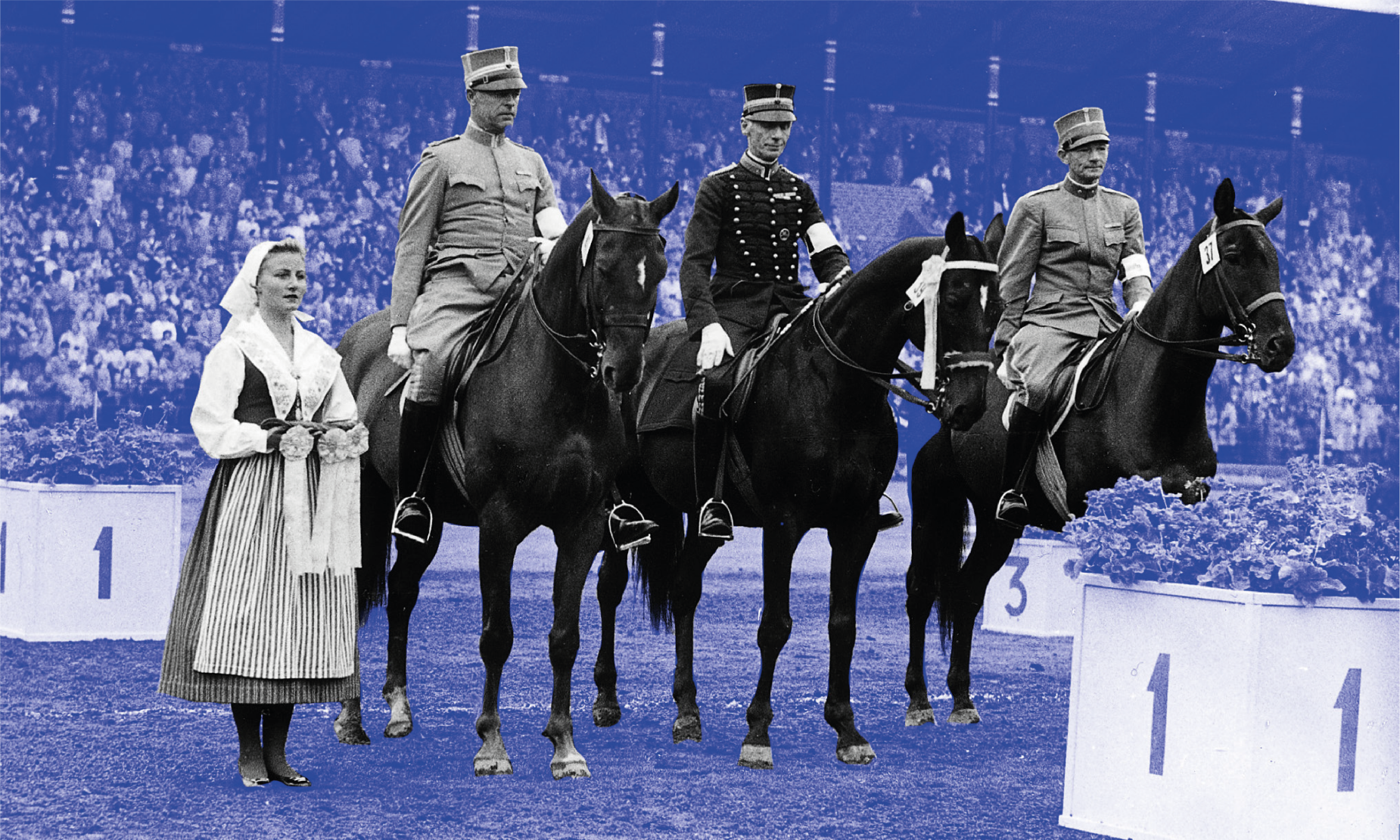
A ccording to Ulf Helgstrand, chairman of the board of the Danish Equestrian Association, the imbalance is not necessarily a problem. Still, the association works to make equestrian sports equally accessible to everyone. Most often, both boys and men experience the most wondering looks outside the stables - in the stables, they just need someone to mirror themselves in.
"We are not focused on the fact that there should be more men in equestrian sports, but we focus on the fact that it should be fun to ride – regardless of your gender – and that is why we started an anti-bullying campaign because riding should be for everyone," explains Ulf Helgstrand. According to the journalist and author of the book What I know about women on horses Pernille Stensgaard, there are many positive things about spending time at the stable. "I am sure it provides a huge number of great qualities being around horses, and that is why it is so important that we talk about equestrian sports to boys as well as girls," she explains.
Boys' camps must attract more
The association Boys in Equestrian Sports is trying to make it attractive for boys to start and stay within the sport. "We want to give the boys a community, so they know they are not alone. We organize social events and camps where they can meet each other," says chairman
Morten Eifler. Morten has been involved with horses since he was a child, and today he and his wife owns an equestrian center, and both of their sons ride. When Morten was a teenager in Thisted, he did not talk about his interest in horses in his high school. Yet he persisted. For Morten Eiflers' sons, going riding has not necessarily been associated with teasing. Still, he feels they have missed out on a community with other boys, for example, riding camps. Therefore, the joy was great when one of his boys was told that he was going to a riding camp with only boys.
"There is not necessarily any discrimination in the stables, but as a boy, you just do not meet many other boys at the stable. Hopefully, the association can help give the boys a community, where they know they are not the only boys who ride and owns horses. In this way, we hope that more boys will stay in equestrian sports and thus pave the way for other boys," Morten explains.
The association gives the boys a community, horse training camps and social interaction, which appears to make sense for the young boys.
"It is a lot of fun, and it is great with the community between the boys. It can also be difficult because some comments can be difficult to handle," explains 14-year-
old Emil and 13-year-old Jonathan continues,
"When I first started riding, a few boys from school thought it was strange that a boy took up horse riding, and they laughed a bit, but now no one says anything. The others mostly think it is cool that I dare to ride. I am the only boy on my riding team, but that is okay.”
Even though the young boys and girls can easily talk to each other in the stable, it means something to the boys to have the community in the association, where the boys can mirror each other.
"It is great to be part of Boys in Equestrian Sports because you make good friends who know what you're talking about when you talk about horses. I have many pony friends who are girls because there are most of them, so it is also nice to have pony friends who are boys," says 11-year-old Efe, and 10-year-old Victor agrees,
"You meet a lot of other boys who ride and love horses. I have had many great experiences with the other boys, both at competitions, on dressage courses and at playdates.
By Cæcilie Kallehave Jensen Photos: Copenhagen Pool Club, FEI, Olive Bennett, Mia Bach, Stine Fogelberg & Photos by AK
Figures from the Danish Sports Association (2022) show that only eight per cent of the Danish Equestrian Association's members are men. The figures are very similar to the FEI's (International Equestrian Federation) figures. But of course, this also includes the fact that not all riders are members of the Danish Equestrian Association. The percentage of women competing at the international competitive level exceeds that of men. Figures from 2019 show 83 per cent of women in dressage and 61 per cent in jumping.
So, what is it actually like to be a man in a stable at a time when the vast majority are women?
sports
more male role
models in equestrian
There is a need for
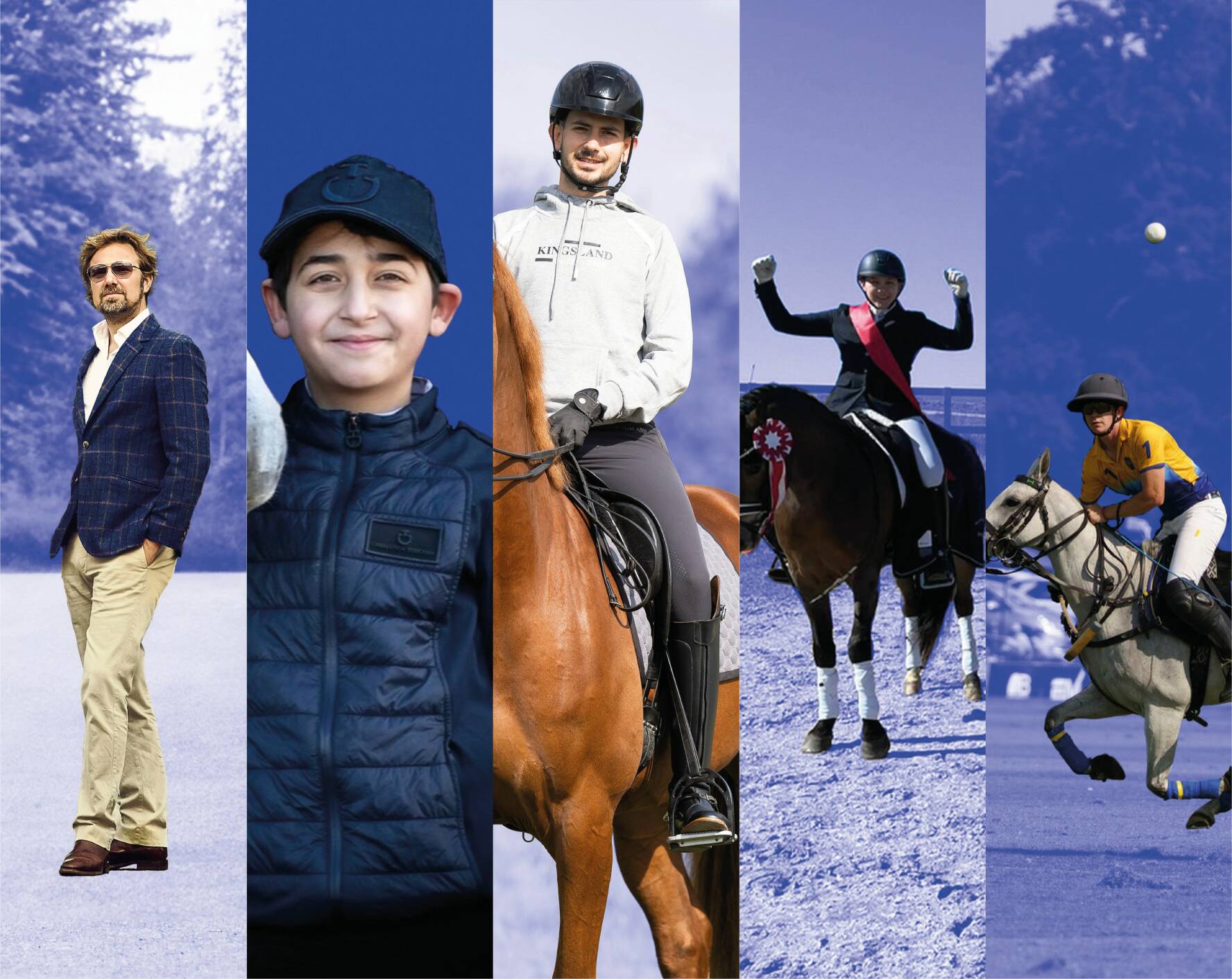
Moisés rides dressage and has been in the saddle since he was three years old and never left the saddle. He has always loved dressage as it is all about focus and details – a discipline that focuses on something other than speed and height. "Dressage requires precision and focus on the smallest details. In riding, you have to be passionate - regardless of gender. In jumping, there is just more speed, but dressage is more a form of dancing with the horse, and I think that deters many men from dressage," Moisés explains.
Moisés has experienced that there is often an assumption that the horse is strong if a man rides it, but for him, it is not about gender, but about one thing, if you want to be a good rider you will be looking for a perfect harmony.
“I think it is the same thing that drives men and women. It is the passion for horses and the desire to ride.” There are no clear answers as to how more men can be involved in equestrian sports - but what is common to the boys as well as the men is that communities and role models can make equestrian sports attractive. To show people that equestrian sport is a sport with room for precision and speed together with others – and most importantly, with the horse and like-minded people.
Having done many equestrian disciplines growing up, I find that men are perceived differently in each discipline, especially by non-equestrian people
– Sam Wisbey

I think it is the same thing that drives men and women. It is the passion for horses and the desire to ride
– Moisés Jover Azuar


I have experienced prejudice from other men about riding in general
– Christian Green
sports
models in equestrian
more male role
There is a need for
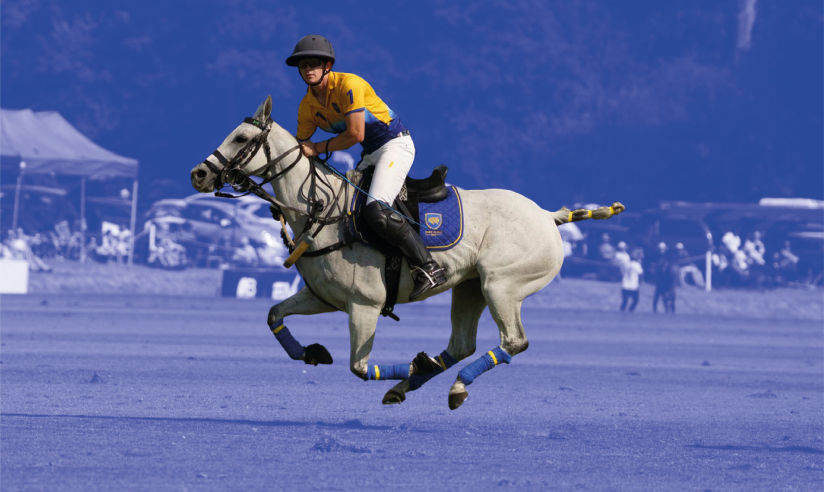
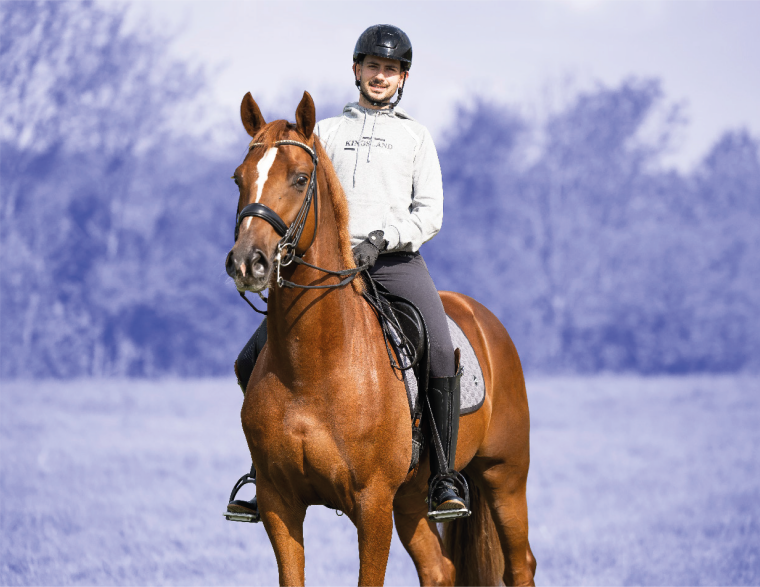
Difficult to be a male and a beginner
Today, a lot of men are at the top of both dressage, jumping, and everything in between. On a hobby level, Dueholmgård Riding Center has, at times, had an all-male team where the men could learn everything from saddling up to handling the horses and becoming comfortable with the horses. To many of the men, it was more complicated than they had assumed, says Malene Treldal, owner of Dueholmgård Riding Center.
The men's team ended up being a success and created a community for many men: "I think it is about normalizing it. In addition, it is important to have great male teachers so that the men have someone to look up to. And last but not least, it is important to focus on social issues. Most men have a hobby of being social, and therefore we put a lot of effort into our classes to 'draw them together' as well as spending time after the classes to banter over a beer," explains Malene Treldal.
Exactly what the boys mention is what equestrian sports are capable of doing, among other things. It brings us together around our shared passion, but something must be done to retain the boys.
"I think polo attracts more men than many other disciplines in equestrian sports. I experience that many boys try out riding when they are young, but as they get older, they lose interest maybe because riding is not considered a masculine sport. That is why I think it is important to focus on keeping the boys in the sport rather than getting them into it later in life," Sam explains.
They have all started somewhere - and for many of them, it has probably been in a completely ordinary stable with the classic gender distribution, with mostly girls. It can be difficult to pinpoint one specific reason why some boys and men quit the sport, but despite that, there are several talented male riders at the top level of equestrian sports. "The boys can be extremely persistent and less perfectionist than the girls, and that is why they persist, even if it does not always look perfect," says Ulf Helgstrand.
But there is a lot of male equestrians out there. One is Moisés Jover Azuar, who has ridden dressage at the top level in Spain, Denmark, Germany and the Netherlands. Today he rides at Helgstrand Dressage.
"In Spain, there is a completely different and positive approach towards men riding horses - perhaps it is connected with the tradition around the Spanish Riding School – but in Denmark and Germany, I have the experienced that there are far more women," he explains.
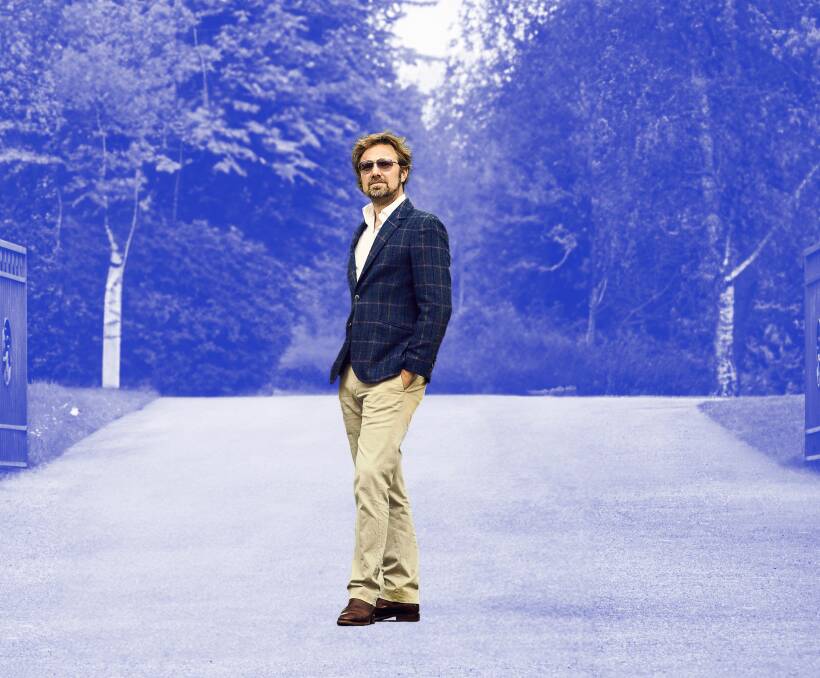
FROM FARM ANIMAL TO HOBBY
For more than 6000 years, the horse has mostly been used by men, and the horse has been a working tool in agriculture and for transport, but also a status symbol for the upper class. In Germany, Sweden and France, among others, strong horses were bred to pull carts and serve in the military.
Over time, the horse was replaced by agricultural machinery, and the horses served their military service. This opened an opportunity for horse riding to become a hobby – also a hobby to be pursued at a competitive level for both men and women. Horse riding is about 100 years old as a competitive sportand in the beginning, women were excluded from the sport. In 1912, riding became an Olympic discipline, and until 1952 women were not allowed to participate. Around 1970, the first riding clubs were founded in Denmark, and up through the 1990s, riding was one of the biggest sports under the Danish Sports Confederation, and today the majority of riders were women. It looks different elsewhere in Europe, where there is an entirely different tradition for men to ride the high dressage with everything from levade to piaff.
The Spanish Riding School in Vienna was founded in 1735 precisely to train men from the nobility in the higher art of riding with the Spanish horse, the Lipizzaner – a tradition maintained in many ways. It was not until 2008 that, for the first time in 436 years, two women passed the exam from the riding school.
WE RIDE BECAUSE....
Tjalfe, 15 years: "I like it because it is cool that you can control such a large animal. And that gets the adrenaline going. It makes me very happy.”
Efe, 11 years old: "It is fun to ride dressage and get better and better, and suddenly you succeed in exercises you could not do before. After all, it is a collaboration with your pony. It is also nice to just be with your pony, and it is great to go to competitions with your friends.”
Frej, 7 years: "It is fun to ride as a boy, and it does not matter that there are no other boys because I like the older girls. It is fun to jump and being at shows.”
Emil, 14 years: "You are dealing with a large animal, and working with and training the horses is exciting. And then it is a challenge for yourself to perform well at the competitions.”
Nicolaj, 17 years: "There are not many people to look up to as there are so few boys in equestrian sports, and others might look down upon you because you are really passionate about something. Therefore, I think that the Association of Boys in Equestrian Sports is fantastic, because it brings us boys closer together. We can find someone to look up to and find friendships for life.”
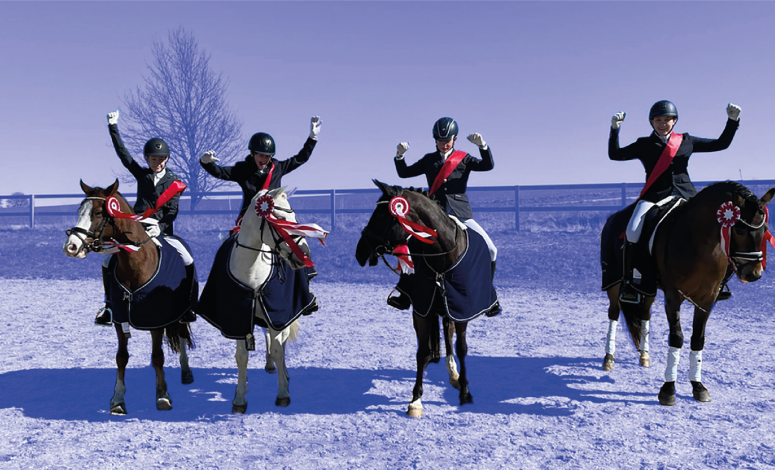
Action and speed attract the men
Fortunately, it is far from all boys who are concerned about being in the stables, yet different aspects of equestrian sports may be important to the boys.
"It does not feel strange but very natural. I do not think much about being the only boy, and I can easily talk with the girls at the riding school. Riding and walking the horses to the paddock is fun, but I do not feel like participating in grooming competitions. It is also fun to participate in competitions," says Jonathan.
Most horse people can probably agree that handling horses daily is hard work. "Perhaps many are put off by the concept of a horse girl, which is so misunderstood. Equestrian sports are difficult; it is heavy work pushing wheelbarrows and cleaning the stables. It is enormously hard work dealing with horses, and I find that you often forget the strength and courage it gives," Pernille Stensgaard explains. However, there may be differences in the individual disciplines when we look generally at the distribution between men and women in equestrian sports. In polo, for example, there is often an overrepresentation of men, and this can be due to several things, says Christian Green, chairman of the Copenhagen Polo Club,
"When you play polo, there are short periods of high intensity and a great adrenaline rush. It combines hand-eye coordination, action and team- and contacts sports.” Christian has not experienced any significant challenges being a man in equestrian sports. He attributes it to the discipline. "I feel a clear difference between riding in general versus playing polo. I have experienced prejudice from other men about riding in general, but polo, on the other hand, seems to give a different kind of respect. I think men see the sport as more masculine and action-packed with a touch of high society.”
The English polo rider Sam Wisbey has the same opinion and experiences a big difference between the disciplines. "Having done many equestrian disciplines growing up, I find that men are perceived differently in each discipline, especially by non-equestrian people. Now being in polo, I would say that men are definitely favored being a male-dominated sport," he explains.
For the very young boys, speed is also something that drives them, says 11-year-old Magne: "It is so fast when you gallop - especially on my horse." But it is not always just the pace that drives boys and men in equestrian sports. "I like riding because it is something you can immerse yourself in and improve in many aspects of the sport," says 17-year-old Nicolai. What they have in common is that it is outside the barn that they have been met with prejudice and wonder.
"I was teased when I was younger, but now people can see that it is a great gift to be able to sit tight on a horse when it is bucking, and then they can see that I have serious leg muscles from riding. It is great that I am strong," says 15-year-old Tjalfe.
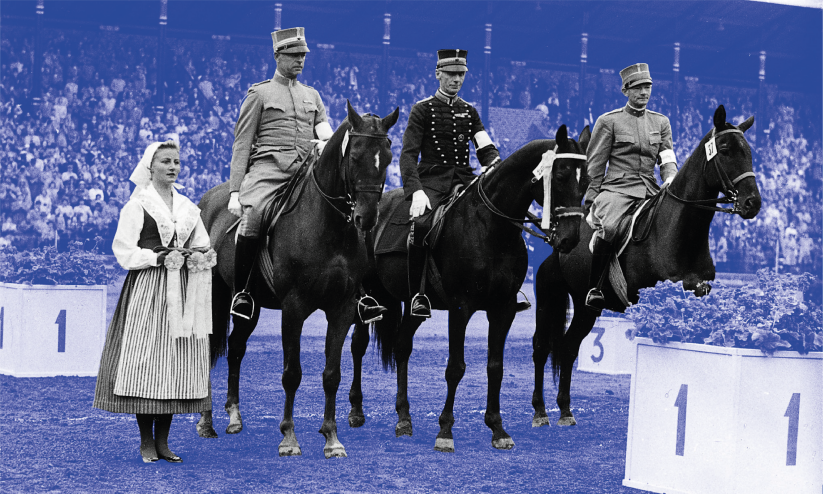
A ccording to Ulf Helgstrand, chairman of the board of the Danish Equestrian Association, the imbalance is not necessarily a problem. Still, the association works to make equestrian sports equally accessible to everyone. Most often, both boys and men experience the most wondering looks outside the stables - in the stables, they just need someone to mirror themselves in.
"We are not focused on the fact that there should be more men in equestrian sports, but we focus on the fact that it should be fun to ride – regardless of your gender – and that is why we started an anti-bullying campaign because riding should be for everyone," explains Ulf Helgstrand. According to the journalist and author of the book What I know about women on horses Pernille Stensgaard, there are many positive things about spending time at the stable. "I am sure it provides a huge number of great qualities being around horses, and that is why it is so important that we talk about equestrian sports to boys as well as girls," she explains.
Boys' camps must attract more
The association Boys in Equestrian Sports is trying to make it attractive for boys to start and stay within the sport. "We want to give the boys a community, so they know they are not alone. We organize social events and camps where they can meet each other," says chairman
Morten Eifler. Morten has been involved with horses since he was a child, and today he and his wife owns an equestrian center, and both of their sons ride. When Morten was a teenager in Thisted, he did not talk about his interest in horses in his high school. Yet he persisted. For Morten Eiflers' sons, going riding has not necessarily been associated with teasing. Still, he feels they have missed out on a community with other boys, for example, riding camps. Therefore, the joy was great when one of his boys was told that he was going to a riding camp with only boys.
"There is not necessarily any discrimination in the stables, but as a boy, you just do not meet many other boys at the stable. Hopefully, the association can help give the boys a community, where they know they are not the only boys who ride and owns horses. In this way, we hope that more boys will stay in equestrian sports and thus pave the way for other boys," Morten explains.
The association gives the boys a community, horse training camps and social interaction, which appears to make sense for the young boys.
"It is a lot of fun, and it is great with the community between the boys. It can also be difficult because some comments can be difficult to handle," explains 14-year-
old Emil and 13-year-old Jonathan continues,
"When I first started riding, a few boys from school thought it was strange that a boy took up horse riding, and they laughed a bit, but now no one says anything. The others mostly think it is cool that I dare to ride. I am the only boy on my riding team, but that is okay.”
Even though the young boys and girls can easily talk to each other in the stable, it means something to the boys to have the community in the association, where the boys can mirror each other.
"It is great to be part of Boys in Equestrian Sports because you make good friends who know what you're talking about when you talk about horses. I have many pony friends who are girls because there are most of them, so it is also nice to have pony friends who are boys," says 11-year-old Efe, and 10-year-old Victor agrees.
"You meet a lot of other boys who ride and love horses. I have had many great experiences with the other boys, both at competitions, on dressage courses and at playdates.
Figures from the Danish Sports Association (2022) show that only eight per cent of the Danish Equestrian Association's members are men. The figures are very similar to the FEI's (International Equestrian Federation) figures. But of course, this also includes the fact that not all riders are members of the Danish Equestrian Association. The percentage of women competing at the international competitive level exceeds that of men. Figures from 2019 show 83 per cent of women in dressage and 61 per cent in jumping.
So, what is it actually like to be a man in a stable at a time when the vast majority are women?
By Cæcilie Kallehave Jensen Photos: Copenhagen Pool Club, FEI, Olive Bennett, Mia Bach, Stine Fogelberg & Photos by AK.
